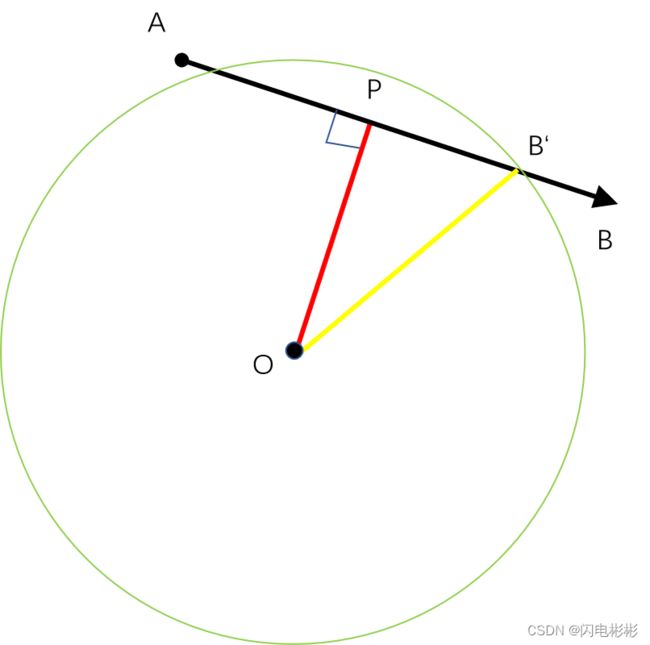voronoi diagram(泰森多边形) 应用 - Empire Strikes Back
欢迎关注更多精彩
关注我,学习常用算法与数据结构,一题多解,降维打击。
voronoi 图求解点击前往
题目链接:https://vjudge.net/problem/URAL-1520
题目大意
有一个城市,形状是圆形。
城市里有很多化工场。
现在想在每个化工厂里放置爆炸伤害半径相同的炸药。使得爆炸可以影响到整个城市。问最小半径是多少。
思考&分析
先求出每个化工厂所在voronoi区域的边。
判断边的交点是否在圆内。
voronoi区域的边与圆的交点,判断是否在voronoi区域的边区域内。
化工厂所在直径与圆的交点也有可能是最远点。
算法细节
1)判断区域与圆有交
可以求出区域所有顶点,判断有没有顶点在圆上或外面。
2)直线与圆求交

可以利用投影先求到P点,利用直角三角形可知PB’长度
从P点沿AB方向就可以得到B’坐标,同理,反向还有一个交点。
3)特殊情况
只有1个化工厂,取离圆边缘最远的距离。
只有2个化工厂或者所有工厂在一条线上时,不能进行三角化。
此时,对坐标进行排序,每两个最近的点取中垂线为分割线,也要考虑到直径与圆的交点是否为最远点。
算法过程
1个点,2个点,共线特殊处理
一般情况:
step 1 对边界点进行delaunay三角化
step 2 遍历每个边界点,收集邻边,并按照逆时针排序。
求解出每个邻边的中垂线,分别与边界和其他中垂线求交(邻近的中垂线才有交点)判断是否与圆有交集
step 3 求解与圆的交点,并判断交点是否在voronoi区域内。
step 4 直径与圆的交点并判断是否在voronoi区域内
代码
#include
#include 本人码农,希望通过自己的分享,让大家更容易学懂计算机知识。创作不易,帮忙点击公众号的链接。
![]()